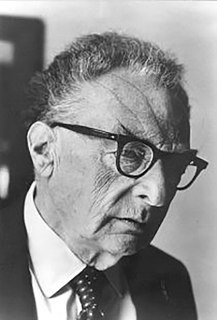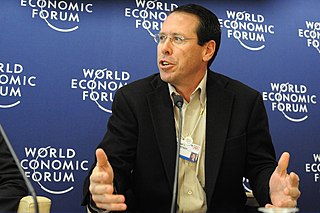A Quote by Ferdinand de Saussure
Within speech, words are subject to a kind of relation that is independent of the first and based on their linkage: these are syntagmatic relations, of which I have spoken.
Related Quotes
As medium for reaching understanding, speech acts serve: a) to establish and renew interpersonal relations, whereby the speaker takes up a relation to something in the world of legitimate social orders; b) to represent states and events, whereby the speaker takes up a relation to something in the world of existing states of affairs; c) to manifest experiences that is, to represent oneself- whereby the speaker takes up a relation to something in the subjective world to which he has privileged access.
The continually progressive change to which the meaning of words is subject, the want of a universal language which renders translation necessary, the errors to which translations are again subject, the mistakes of copyists and printers, together with the possibility of willful alteration, are themselves evidences that human language, whether in speech or print, cannot be the vehicle of the Word of God.
Now I must take you to a very interesting part of our subject-to the relation between the combustion of a candle and that living kind of combustion which goes on within us. In every one of us there is a living process of combustion going on very similar to that of a candle, and I must try to make that plain to you. For it is not merely true in a poetical sense-the relation of the life of man to a taper; and if you will follow, I think I can make this clear.
There is nothing to be known about anything except an initially large, and forever expandable, web of relations to other things. Everything that can serve as a term of relation can be dissolved into another set of relations, and so on for ever. There are, so to speak, relations all the way down, all the way up, and all the way out in every direction: you never reach something which is not just one more nexus of relations.
I want relations which are not purely personal, based on purely personal qualities; but relations based upon some unanimous accord in truth or belief, and a harmony of purpose, rather than of personality. I am weary of personality. Let us be easy and impersonal, not forever fingering over our own souls, and the souls of our acquaintances, but trying to create a new life, a new common life, a new complete tree of life from the roots that are within us.
The greatest thing about being a mother so young, I had my first child at 24, is that I cook, I clean, I love to be independent and kind of hate to be waited on and hate to be taken care of. So, I guess that demonstrates my fiercely independent nature which is kind of anti what I portray on a weekly basis.
The first thing to say is that the ordinary criminal law in this country, the Human Rights Act, the Children's Act, all of the laws of the country take precedence, but what I'm also saying is that within the context of a secular country, which Britain now kind of is, or at least a country which purports to be relatively equal between religions, there should be some scope for allowing faith communities to govern themselves - subject to it being consensual and subject to everyone's human rights being observed.
The subject who speaks is situated in relation to the other. This privilege of the other ceases to be incomprehensible once we admit that the first fact of existence is neither being in itself nor being for itself but being for the other, in other words, that human existence is a creature. By offering a word, the subject putting himself forward lays himself open and, in a sense, prays.
Semantics is about the relation of words to thoughts, but it also about the relation of words to other human concerns. Semantics is about the relation of words to reality - the way that speakers commit themselves to a shared understanding of the truth, and the way their thoughts are anchored to things and situations in the world.



































